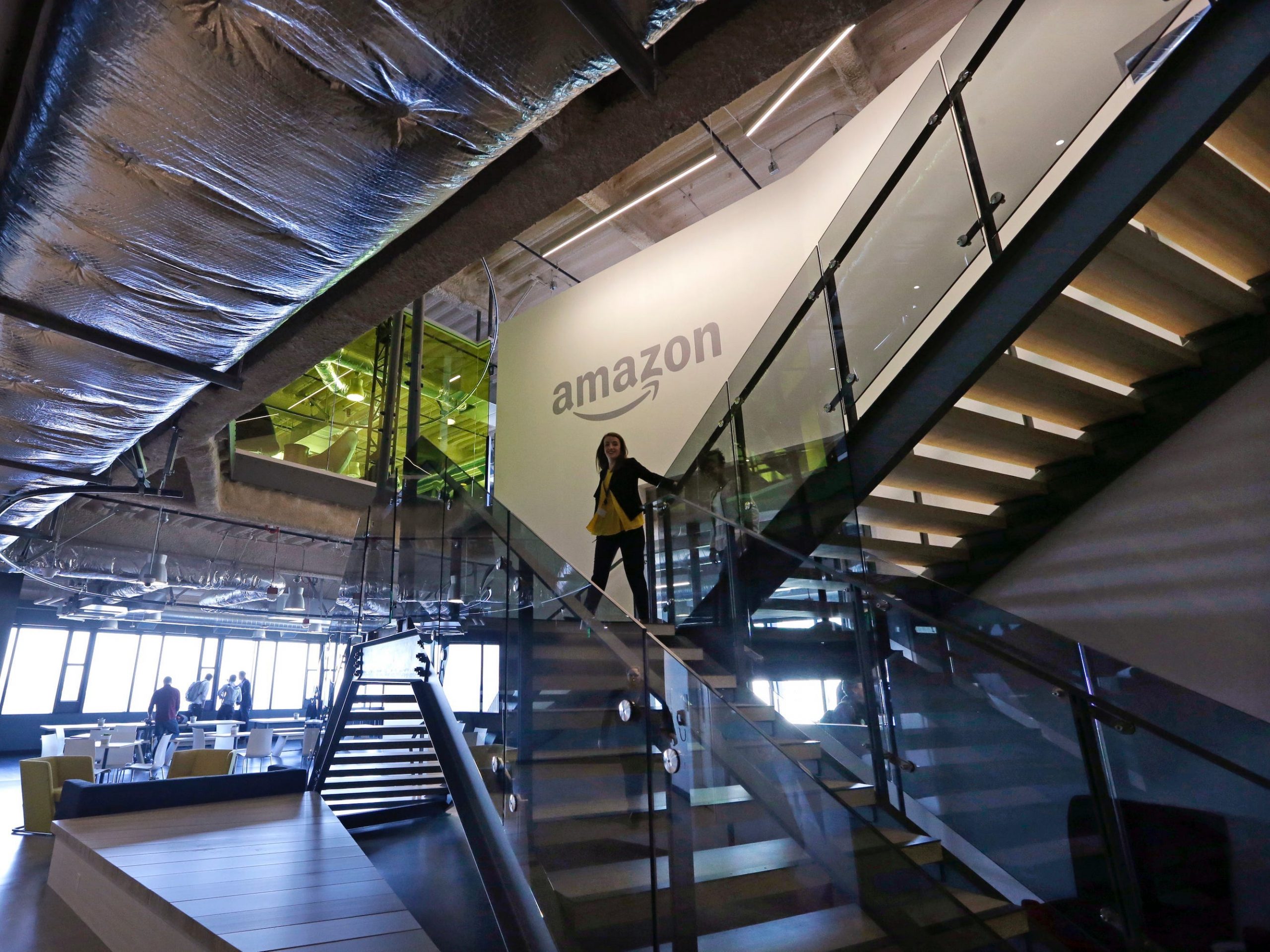- Amazon announced that it’s expanding its physical offices in six “tech hubs” around the country and adding 3,500 jobs.
- The expanded offices will be based in Dallas, Detroit, Denver, New York, Phoenix, and San Diego. Amazon is investing $1.4 billion in building out those offices, it said.
- Amazon’s office hubs follow a larger trend of tech companies reconsidering how and when employees return to the office. Facebook and Google aren’t requiring workers to return until next summer, while Twitter has said employees may work from home forever.
- Hiring more workers outside of Seattle, where the company is based, allows Amazon to expand its talent pool and potentially adjust salaries down in more affordable cities.
- Visit Business Insider’s homepage for more stories.
For Amazon, the future of office work, post-coronavirus, means thousands of new jobs and office hubs in six cities across the US.
The ecommerce giant announced Tuesday that it’s planning to add 3,500 workers and will expand its offices in six US “tech hubs” – Dallas, Detroit, Denver, New York, Phoenix, and San Diego.
Teams at those offices will work in various sectors of Amazon’s business, including AWS, Alexa, Amazon Fashion, and Amazon Fresh, the company said. Amazon plans to fill a range of roles at those locations, including software engineers, data scientists, and product managers.
Amazon said it’s investing $1.4 billion in building out those offices. In New York, the company is building a new 630,000-square-foot office in the Lord & Taylor building on Fifth Avenue, which Amazon acquired from WeWork in March for a reported $1 billion. The building was previously planned to be the site of WeWork’s global headquarters.
Amazon said it will add 2,000 new jobs in Manhattan.
Amazon's investment in physical office space comes at a time when many major tech companies are evaluating how and when employees will return to the office. Amazon previously announced that employees could work from home until January 8, 2021, while companies like Facebook and Google have said that employees may work remotely until summer 2021.
Twitter has said its workforce may work from home forever with no expectation to return to the company's physical office in San Francisco.
But Amazon's decision to expand its office space outside of Seattle, where its main headquarters is located, falls in line with a trend among tech workers to abandon major coastal tech hubs, particularly the San Francisco Bay Area. A recent survey from job-search database Hired found that 40% of tech workers based in the Bay Area would move to a less expensive city if they were asked to permanently work from home.
The shift to a "decentralized" office has been percolating in the tech industry for years, and has likely been spurred on by the coronavirus. Twitter CEO Jack Dorsey recently said that Twitter has been working "for a year, if not two years" around decentralizing the way employees work, and that having a distributed workforce was "the whole promise of the internet" to begin with. The internet should have made a central office location "irrelevant," Dorsey said.
And while new tech offices in less expensive cities could be a benefit for tech workers looking to leave Seattle or the Bay Area, it also allows Amazon to expand its talent pool and potentially adjust salaries down in more affordable cities. In the case of Facebook, CEO Mark Zuckerberg recently told employees that beginning in January, employees who leave the Bay Area will have their salaries adjusted based on where they live.

